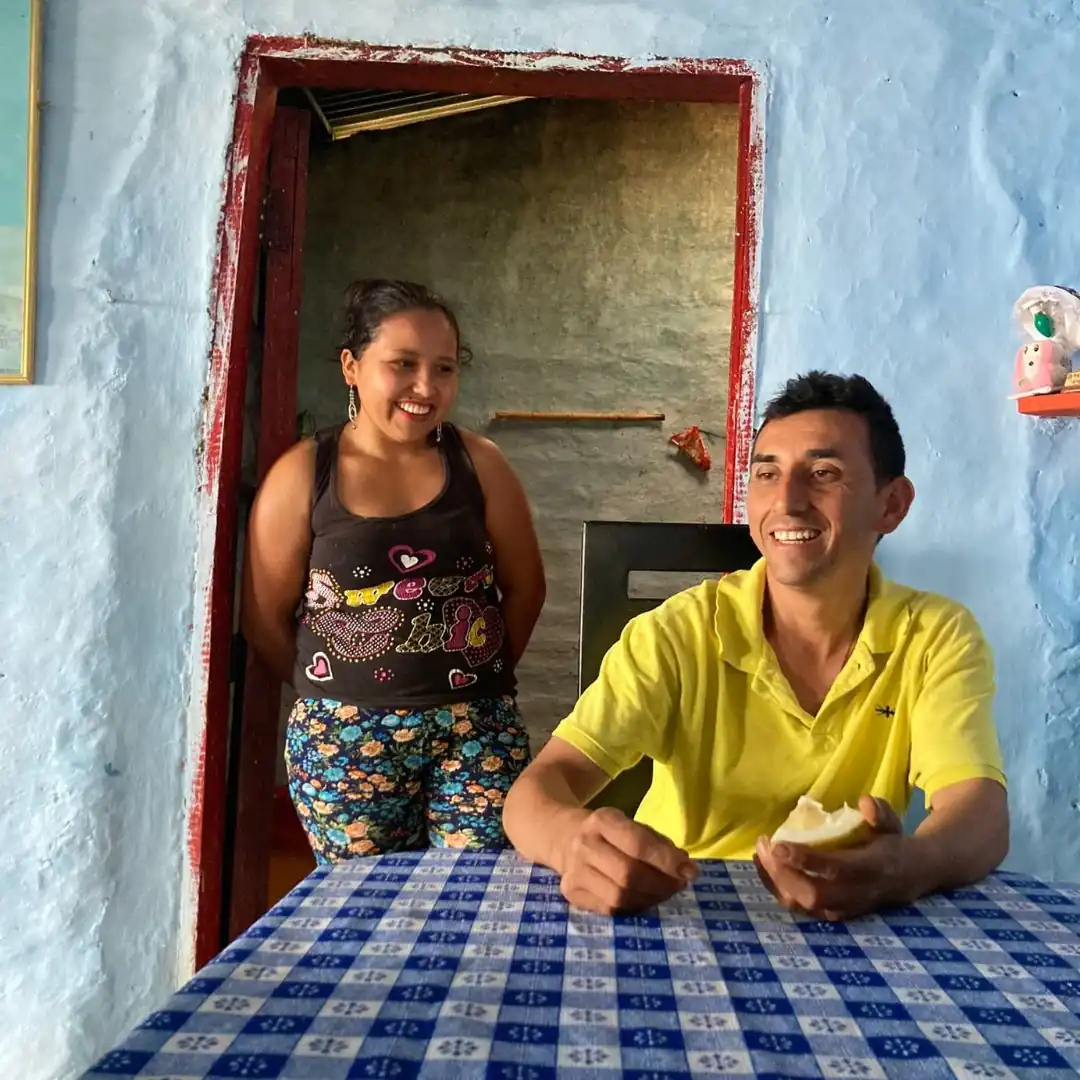
José Mopán

This farm is about 40 minutes drive from civilization. It is a very modest farm full of strange fruit trees and bushes. José Mopán, with his wife and two children, runs the farm in the traditional way and has only started the processes in the last few years. This in-kind partnership is the start of a long term collaboration for the future and we are very excited about it. Because what else makes us Chicas Industry other than just that, buying and helping farmers who need not only financial security but also a kick-start into other projects.
COUNTRY
Columbia
REGION
Bruselas, Huila
FARM
Finca Limón
ALTITUDE
1.800 m.n.m.
SIZE OF THE FARM
3-4 ha
COFFEE VARIETIES
Caturra, Columbia, Castillo
ABOUT THE FARM
This story began long ago when Mr Miguel Cardenas bought a small plot of land in 1987 and decided to continue growing the Caturra coffee variety, which was then in its fifth year. The coffee trees were spaced unusually far apart, so there was no need to „soqueo“ them, as they were fruiting nicely and abundantly. Gradually, Guamo trees, which provide shade, protection and support for the coffee trees, were planted on the farm, along with another variety of coffee tree, Colombia. This was followed by another wave of planting trees such as Cedar, Chachafruit, Walnut, Yarumo, Guamo, Lemon, Sapote, Mandarin, Orange, Guava and Mango.
Coffee is currently at the mature stage, 35 to 40 years have passed since it was sown and we have provided it with much needed shade. This, by the way, is absolutely essential for the birds at certain times of the year and we then visit the farm with the whole family to observe the variety of birds that the trees attract and host.
The Huila region is now one of the most famous amongst coffee lovers and it was here that our plans to establish Chicas Industry first began to take shape. We first visited the region in March 2019 and fell in love with the place, especially the Pitalíto area.
„We have three years of experience growing our coffee organically and are in the process of certifying the entire farm.“
“In terms of infrastructure, we have a warehouse with fertilizers, a warehouse for aging coffee, two drying rooms, a two-story processing hall with a wet mill, two coffee tanks, and a fermentation yard for carrying out different processes. With this potential that we have in our farm, we propose it as an agro-tourism destination where you can do hiking, bird and animal watching, horse riding, sightseeing and coffee tourism.“
ABOUT THE LOT
José is a natural coffee enthusiast. In his opinion, its flavor is the fullest and finally the potential of coffee can be used. The family would like to start other fermentations, perhaps those without air access.
LOT CO-23-023 Pink Bourbon - natural
The coffee is collected, sorted, and selected in water for bean density. The coffee is then left to ferment for 120 hours in tanks. This is followed by further fermentation for 72 hours in bags. The coffee is then gradually dried in dryers and the beans are stabilized.
LOT CO-23-024 Caturra - natural
The coffee is collected, sorted, and selected in water for bean density. The coffee is then frothed and left to ferment in the bags for 100 hours. This is followed by a further 100 hours fermentation in a tank. The coffee is then gradually dried and allowed to stabilize.
LOT CO-23-025 Geisha - natural
The coffee is collected, sorted, and selected in water for bean density. The coffee is then left to ferment for 48 hours in a tank. This is followed by a further 40 hours of fermentation in bags. The coffee is then gradually dried and allowed to stabilize.
CO-24-044 José Mopán Pink bourbon
The first harvest of the Pink Bourbon variety at Limon Farm was processed anaerobically. That is, after the ripe cherries are picked, the coffee is cleaned of impurities and then fermented in a closed plastic tank for 120 hours. The coffee is then lightly washed and the whole coffee cherry is dried on the farm for about 20 days.








